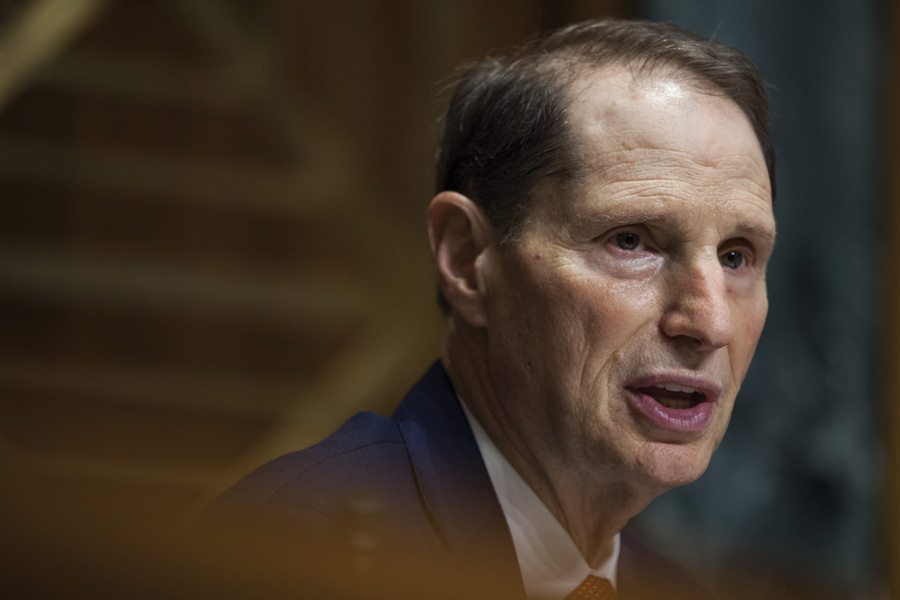Senator Ron Wyden unveiled his own wealth tax on Thursday, taking a slightly different approach to targeting the same nonwage income as proposals from Democratic presidential hopefuls Elizabeth Warren and Bernie Sanders.
[
More:
Richest would have lost half their wealth under Warren's tax plan]
The plan to tax some investments annually, rather than when they're sold, would apply to taxpayers who earned at least $1 million or have assets worth $10 million for the previous three years. Mr. Wyden, the top Democrat on the Senate Finance Committee, is seeking to require wealthy investors to pay the Internal Revenue Service every year on the amount their assets have appreciated, changing a longstanding feature of the tax code that taxes aren't due until something is sold.
"Thanks to a broken tax code that favors income from wealth over income from wages, the average family worth more than $100 million has never paid tax on more than half of its wealth," according to the text of the plan released Thursday. "Working families pay taxes every two weeks. This is a system designed for the fortunate few by professional tax dodgers."
This accounting change adds to the throng of tax-the-rich ideas — including higher rates on income and capital gains taxes, levies on the mega-wealthy and taxes on Wall Street trades — that Democrats have floated ahead of the 2020 presidential election. With Mr. Wyden's position on the Senate Finance Committee, he could play a key role in shaping tax legislation if his party were able to win the White House and a majority in Congress.
Taxing the Gains
Mr. Wyden's plan would require taxpayers to annually recognize and pay tax on the gain — or deduct a loss — from tradeable assets, such as stocks, bonds and derivatives. Nontradeable assets that are harder to value, such as real estate or stakes in private businesses, would be subject to a so-called "lookback taxation" to tax any gain and minimize the advantages of deferral.
Mr. Wyden said initial estimates of his proposal project it would raise as much as $2 trillion over a decade. That revenue would fund Social Security.
The plan could be an alternative to Ms. Warren's wealth tax, which she has made a central part of her presidential campaign. Mr. Wyden's proposal would affect more people than Ms. Warren's plan, which would apply a 2% annual tax to fortunes above $50 million and 3% tax on wealth above $1 billion. Under Ms. Warren's plan, the tax would be required whether or not the taxpayer's holdings appreciated.
[
More:
Wealth tax proposed by Elizabeth Warren could be illegal]
Critics say the plan from Ms. Warren, a Massachusetts senator who sits on the Banking Committee, could be easy for taxpayers to avoid, difficult to administer and face constitutional challenges. Mr. Wyden's plan could also face some administrative difficulties, but is less likely to run afoul of the Constitution.
Mr. Wyden's plan has exemptions for homes, farms and retirement accounts. Those exclusions seek to exempt middle-class taxpayers who own valuable property.
The plan could act as a backstop to proposals from other Democrats, including former Vice President Joe Biden, who have called to increase capital gains tax rates. Long-term capital gains rates, including a levy that funds the Affordable Care Act, top out at 23.8%. Raising that rate could cause billions of dollars of tax avoidance, but a plan to tax those gains annually could eliminate that in the long run, according to the Congressional Research Service.
[
Recommended video: Young advisers envision a radically different business in five years]







